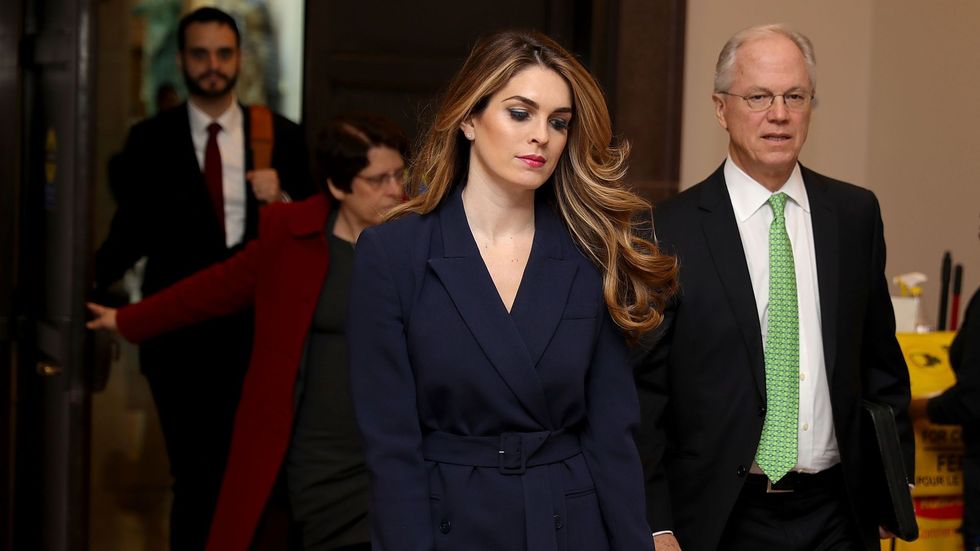It's been a little over a week since White House Communications Director Hope Hicks announced her departure from the White House. Her resignation came less than six months after officially taking the position permanently. Immediately following the news, political journalists published articles voicing their shock and acknowledging the unexpectedness of the departure, while seemingly forgetting to answer the whys and the what nows.
Personally, for me, it was tempting to automatically draw a line between Hicks' exit and the two controversies circulating on the news around that time: the Rob Porter scandal and the House Intelligence Committee testimony - both of which Hicks played a substantial role in. Her admittance to telling white lies for President Trump and being embroiled in the scandal as both communications director and girlfriend to Porter may have put her in an uncomfortable spotlight. To give her the benefit of the doubt would mean to dismiss the suspicious timing as a coincidence - that a resignation came so close in proximity to those two things. But I don't believe in coincidences when it comes to the West Wing.
Though the alternative may be worst. Imagine this: someone who has been in the White House for over a year starts thinking about leaving shortly after rising to one of the most prominent jobs. My point? Regardless of if it was a decision due to scandal or due to the state of the White House, it doesn't indicate stability in the Trump administration.
It's really no secret the White House has become a never-ending revolving door for staff members. Hicks was technically the fifth communications director and the third to hold it on a "permanent" basis. Trump has already said his goodbyes to a press secretary, a chief strategist, a chief of staff - with John Kelly on thin ice apparently - and plenty of others who haven't made headlines.
But Hicks was supposed to be different. Nicknamed "Hopester" by Trump himself, she was his longest-serving aide. She understood Trump, the way he worked; she commanded his implicit trust. She had something that others from the GOP establishment clearly lacked: loyalty. And thus, it had made sense that Hicks was a potential long-termer. She has now proved a short-timer, adding her name onto the long list of ex-Trump employees, like Reince Priebus, Stephen Bannon, Sean Spicer.
Whether it's because of the exhaustion in dealing with Trump or it's the stress that inevitably comes with Washington politics for outsiders like Hicks, it seems Trump is having a difficult time maintaining anything resembling stability within his staff. And for a president who is known to be heavily reliant on the last person he has spoken to, this may lead to further volatility.
As the New York Times so eloquently put, losing Hicks was like losing a limb. If anything could have hinted at stability, it was Hicks.


















